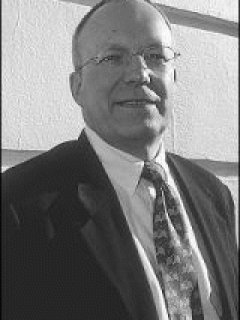Do we only recall Archimedes' discoveries because he had a professional qualification from the University of Syracuse? No. Inspiration and insight do not depend on formal qualifications, neither does the perspiration that some claim contributes the other 99% to 'genius'.
Standardising procedures and codes of practice may be necessary for achieving professionalism, but on their own they are not sufficient to becoming a professional. Nor should professional qualification be equated with proficiency. Criticism of market research arises from inadequate interpretation as well as inappropriate practice.
The establishment and growth of qualitative market research in the UK has been due largely to talented individuals who, like Archimedes, have produced insights and solutions to clients' problems that these clients were unable to obtain by other means.
When I read the comment by Ann Whalley, the AQR chair, reported in BMRA's MRBusiness, "that there is still room (in the AQR) for the guru alongside the experienced company researcher who helps build the business", I wondered what stage of the qualitative research product lifecycle we havereached. I also understood more what lay behind the name change from AQRP.
As Ann wrote recently, the market research market is segmented. Among suppliers this includes size and type of organisation, specialist proficiencies and location. The same is true of clients.
At a recent evening meeting of BIG, the ex-MRS Special Interest Group, looking at the prospects for market research over the next three years, the speaker from Barclays Bank included a brief breakdown of the sector as the Bank sees it. He said that of 2,030 'firms' only 60 have a turnover in excess of £5m, while 30% have a turnover of £50,000 or less. If correct, the implications of these figures for the cost of obtaining formally recognised qualifications are immense. How much can many qualitative researchers realistically afford?
AQR has grown because it satisfies needs not met in full by either the MRS or BMRA among those involved with qualitative research. It began as a networking organisation for individuals with a common interest in practising qualitative research. Now it also provides affordable training, seminars and up-to-the minute guidance on what is happening in its sector. The success of the annual AQR Trends Day in attracting clients and researchers is in stark contrast to the MRS's Annual Conference.
In pursuing greater financial stability and efficiency the MRS, as well as foregoing above-the-line promotion of the industry, has had to cut back its services to members in the regions and to Special Interest Groups, causing the latter to go independent. Why then has the MRS chosen this time to approach the leading independent and financially self-sufficient special interest group with a view to a closer alliance.
As Ann pointed out in MRBusiness, the Market Research Forum facilitates liaison between the various bodies in the industry. This could be the channel for establishing the criteria for qualifications relevant to qualitative researchers seeking a professional qualification without there having to be a closer relationship with the MRS.
Around a decade has passed since the MRS successfully resisted the Institute of Marketing's attempt, as part of its qualification for Chartered status, to be the accrediting organisation for all vocational marketing qualifications including market research.
Drawing a parallel, I suggest that the AQR continues to co-operate on industry acceptance and promotion issues with other MR bodies via the MRF, while seeking to enhance the standing of the qualitative profession and its members by obtaining accreditation rights of its own.
Then the AQR can continue to develop and strengthen its particular brand values and positioning in the market research market, while expeditiously incorporating new thinking and approaches, like bricolage, in its accredited courses.


